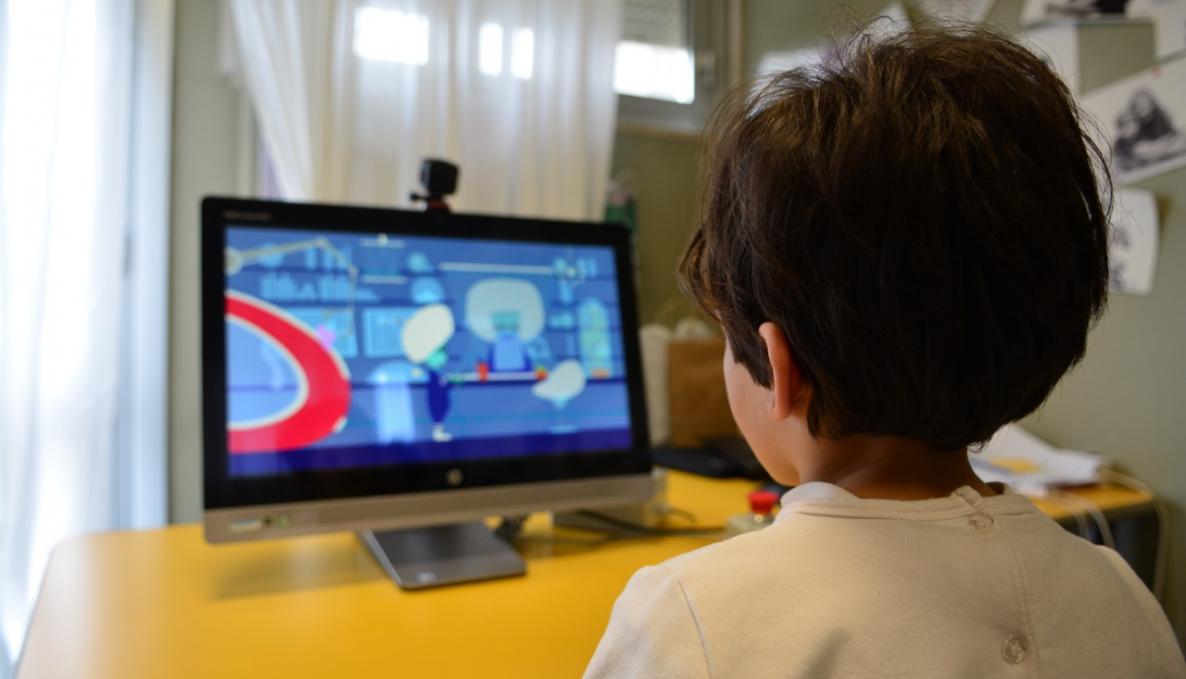First telerehabilitation experience begins in the Azienda USL Toscana nord ovest, thanks to TABLET-TOSCANA research project, with the coordination of IRCCS Fondazione Stella Maris and the participation of Sant'Anna School
Funding for the project was provided by Regione Toscana

The first telerehabilitation experience in the Azienda USL Toscana nord ovest begins thanks to a research project coordinated by the IRCCS Fondazione Stella Maris and funded by Regione Toscana. Sant'Anna School, with the Institute of Management, is participating in the project. It is the TABLET - Tuscany project through which the USL Toscana nord ovest has equipped itself with 20 tablets for motor telerehabilitation, through the use of a wearable set of sensors, and also linguistic and cognitive telerehabilitation of children and young adults with disabilities resulting from congenital or acquired injuries. The use of these devices is already active in the INNOVATE laboratory at Stella Maris and now they will be available to all functional units Childhood and Adolescent Mental Health of the Asl Toscana nord ovest and the Rehabilitation Department of Versilia Hospital.
Users, selected by the rehabilitation teams, will begin using the tablets in the structures, where the exercises considered appropriate for their rehabilitation program will be selected. The device will then be brought to the user's home, who will be able to carry out the exercises autonomously, with the help of family members as well, or will have the opportunity to activate a video call with the therapist in charge who, again remotely, will be able to give directions and possibly modify the assigned exercises.
"Telemedicine activities are developing quickly", says Federico Posteraro, head of Rehabilitation at Versilia Hospital and project manager for the Asl Toscana nord ovest, "although, of course, telerehabilitation shows additional complexities related mainly to user safety and the availability of network infrastructure".
On the informatics side, the project is being overseen by the Asl's Transition to Digital structure, which, with the continued support of Estar Regione Toscana, has been available to support these activities from a technological point of view.
This is therefore an initial feasibility study that will still provide general indications of the effectiveness of treatments delivered remotely. This analysis will also be possible thanks to the involvement of Sant'Anna professor of Sant'Anna School Giuseppe Turchetti and his team from the Institute of Management. The team will also analyze the topic in terms of health economics.
It deserves to emphasize the close collaboration between IRCCS Fondazione Stella Maris, Department of Rehabilitation and Childhood and Adolescent Mental Health Functional Units (UFSMIA), all of which are important entities for the Asl, who put in a huge organizational effort and to whom thanks are extended by all project leaders.
"The collaboration between the Stella Maris and the territorial services", explains Giovanni Cioni, scientific head of the project and scientific director of the IRCCS Stella Maris Foundation, "has always been an important and crucial point of strength to ensure a hospital-territory continuity of the taking care, monitoring and treatment of neurodevelopmental disorders and disabilities. TABLET Toscana will allow even more to strengthen this alliance and allow new technologies, especially ICT (Information and Communication Technology) and telerehabilitation, to be not only the prerogative of research activities or third-level centers, but fully integrated and enhanced in territorial services, making rehabilitation more accessible, more personalized and of greater intensity, thanks also to the full involvement of families".
"This is a highly innovative project", adds Giuseppina Sgandurra, a researcher at the University of Pisa and head of INNOVATE Lab, "that fully integrates into national and international networks, including those of the RIN (Neuroscience and Rehabilitation Network) and the Pediatric IRCCS Network, which link all pediatric tele-neurorehabilitation IRCCSs, with the aim of creating common protocols and evidence at the territorial, national and international levels".



